By: Ian Ferdinand Lopez, Person with Autism
 |
| Mr. Ian Lopez |
Ian Ferdinand Lopez, is a college student taking up BS Applied Physics in University of the Philippines Los Baños. He is the First Person with Autism to be the Official Philippine CWD representative for the 7th ASEAN Ministerial Meeting on Social Welfare and Development (AMMSWD), at Brunei Darussalam last November 23, 2010. Ian advocated for autism and children with disabilities to ASEAN member ministers. Ian filed this report using the third person narration.
The Philippine delegates, Ian Ferdinand Lopez, Almyradz Aguam and Jiordan Gabriel Simon, together with Ms. Marissa Navales, planning officer of the Council for the Welfare of Children, arrived in Brunei International Airport in the morning of November 23, 2010. They were immediately brought to Grand City Hotel, located a few kilometers south of the airport, through a vehicle courtesy of the Ministry of Culture, Youth and Sports of Brunei Darussalam.
In the early afternoon, they traveled to Rizqun International Hotel where a meeting among senior officials from their respective social welfare and development-related ministries was being held. They met three delegates from Brunei Darussalam representing their various sectors.
During their time in the said place, they rehearsed and subsequently revised the presentation to suit the flow of the discourse. After the rehearsal, the Philippine delegates stayed in the hotel until 6:30 PM, when it was time for them to return to their hotel. They concluded the evening by searching for a place to eat. Subsequently, they ended up eating at a nearby local restaurant.
On the 24th, they had breakfast at their respective hotel rooms. After that, they were toured around Bandar Seri Begawan by Abdul Wahid bin Abdullah, an Education Officer from the Ministry of Education. They visited the Jame’Asr Hassanil Bolkiah Mosque, the Sultan Omar Ali Saifuddien Mosque, the pier to Kampong Ayer, and Tutong, where Abdul resides with his wife and two daughters.
After lunch, they set up the booth in the conference room at Empire Hotel and Country Club, and made final touches to the presentation. The booth highlights the ASEAN Children’s Forum’s productive output. Also present in the final rehearsals are the representatives from Myanmar and Malaysia. To cap the night, the child participants and their mentors were invited to the welcoming dinner, which was held at the nearby Empire Theatre.
The next day was the opening session of the ASEAN Ministerial Meeting on Social Welfare and Development+3, otherwise known as AMMSWD+3, which was held at Empire Hotel and Country Club in Jerudong, Brunei Darussalam. The ASEAN+3 are composed of the member-states of the ASEAN Community, plus the People’s Republic of China, the Republic of Korea (South Korea) and the State of Japan.
The program started with the arrival of The Honorable Pehin Orang Kaya Pekerma Laila Diraja Dato Paduka Awang Haji Hazair bin Haji Abdullah, the Minister of Culture, Youth and Sports in Brunei Darussalam and Chairperson of the said meeting. He delivered a speech on the role of the elderly in society.
After the speech from the Minister of Culture, Youth and Sports, the selected child delegates from Brunei Darussalam, Malaysia, Myanmar and the Philippines delivered a report highlighting the outputs of the child delegates and mentors who attended the ASEAN Children’s Forum.
At the end of the presentation, they managed to succeed in their goal: to convince the ministers of social welfare and development that the children and the youth are the future of ASEAN. After that, relayed the good news – the ministers decided that the ASEAN Children’s Forum will be held once in two, not once in a year as mentioned in the presentation.
To inspire them to stay true to their mission, objectives and advocacies and to reach out to some children in need in the sultanate, they were toured to the Pusat Ehsan Al-Ameerah Al-Hajjah Maryam, a training center for persons with disabilities funded by non-government organizations, located at the outskirts of Bandar Seri Begawan.
After their lunch at Empire Hotel and Country Club, they proceeded to Royal Regalia, a museum highlighting the life of the current Sultan of Brunei, Sultan Haji Hassanal Bolkiah, and various important events in the history of Brunei Darussalam, including the 25th anniversary of his reign, which happened sometime in 1992.
The day ends with a dinner with Philippine Embassy officials led by Consul-General Raymond R. Balatbat, Philippine representatives to the AMMSWD led by DSWD undersecretary Alicia R. Bala, and two delegates representing the Philippines at the 40th APEC Energy Summit, held near-simultaneously with the AMMSWD, at the I-Lotus Restaurant in Kampong Rimba, approximately 10 minutes from the airport.
The dinner was highlighted with a lively discussion among the guests, sometimes bordering on contemporary issues. Before, during and after the dinner, they discussed the plight of Filipinos migrating from the rural parts of the country to more urban areas (Zamboanga, Davao, Cebu, Iloilo, Naga, Manila) for various reasons (poverty, war, coercion by syndicates). Other discussion points included nuclear energy, efficiency in government, charter change, utilization of natural resources, development of various places in the country through various means (agro-industrial projects, tourism, education and related infrastructure projects) and other current events that were considered as important in the Philippines and in the Southeast Asian region. Notwithstanding the hot issues, they managed to enjoy their meals, some of which are too hot to be handled by some of the guests.
On the last day, the delegates dismantled the booth and bade their farewells to their new and old friends, especially to those who have close ties with other child delegates and members of the secretariat – some of them participated in the ASEAN Children’s Forum. Before they left for the Philippines, Ian tried ABC, otherwise known as Ais kacang, their version of “Halo halo”, and spent on pasalubong for their kin, officemates, classmates and their special friends.
In the end, it wasn’t all about the memories and their Brunei experience. What is important is that they were able to convey a message – the ASEAN Children’s Forum is important for all, since the children living in the ASEAN Community can utilize it as their voice, where governments and organizations can utilize some of the suggestions and tackle the issues raised in the forum, and where parents and mentors guide the children to become productive, responsible and proactive members of the ASEAN Community.
===========
Acknowledgements: UNICEF-Philippines, Council for the Welfare of Children (especially to Ms. Marissa Navales), Autism Society Philippines, City Government of San Pablo, University of the Philippines Los Baños, Ms. Dory Gadaza, Creature Graphics, Ministry of Culture, Youth and Sports (Brunei Darussalam), AMMSWD and AMMSWD+3 organizers, Philippine Embassy in Bandar Seri Begawan, Abdul Wahid bin Abdullah and Dalina Binti Awang Sabili from the Ministry of Education (Brunei Darussalam), the Department of Social Welfare and Development (Philippines), friends and family members most especially his parents who trusted him during the entire duration of the voyage since he traveled without his relatives and God Almighty for guiding him.
Ian also represented CWDs in the First ASEAN Children’s Forum. ACF serves as a platform for ASEAN children to express their views on urgent regional issues and how these can be resolved by governments through consultations, participation in developing policies, legislation, and implementing programs that affect children.
Click here to read more on Ian’s report.

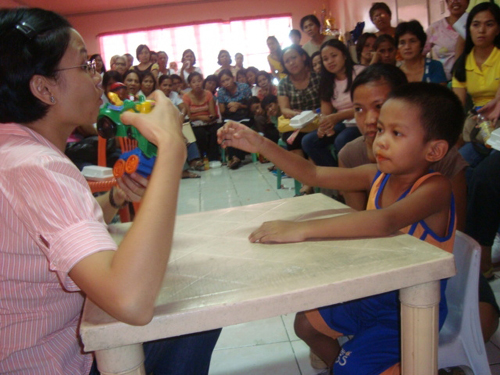
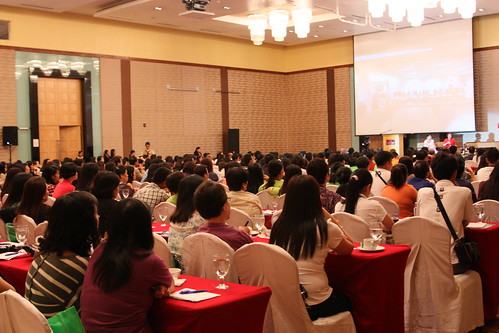





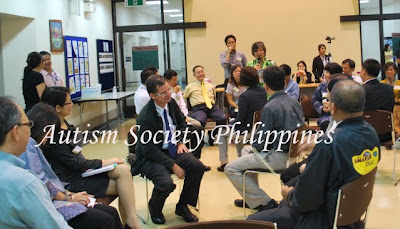







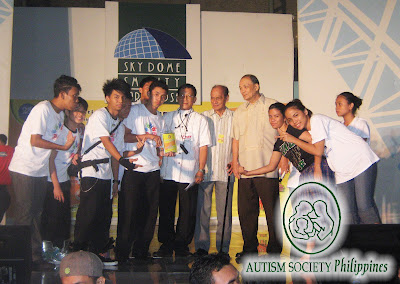













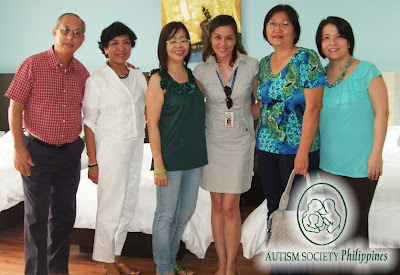




 Posted in:
Posted in: 




